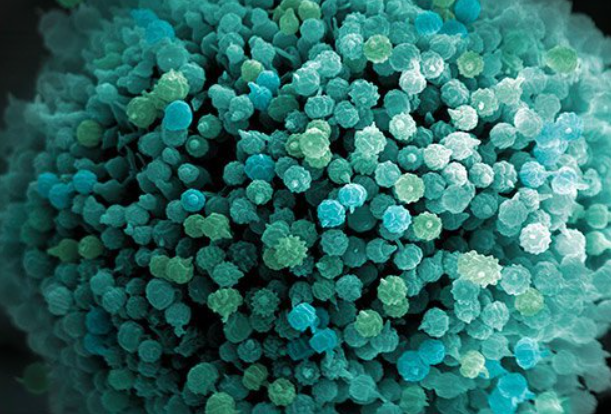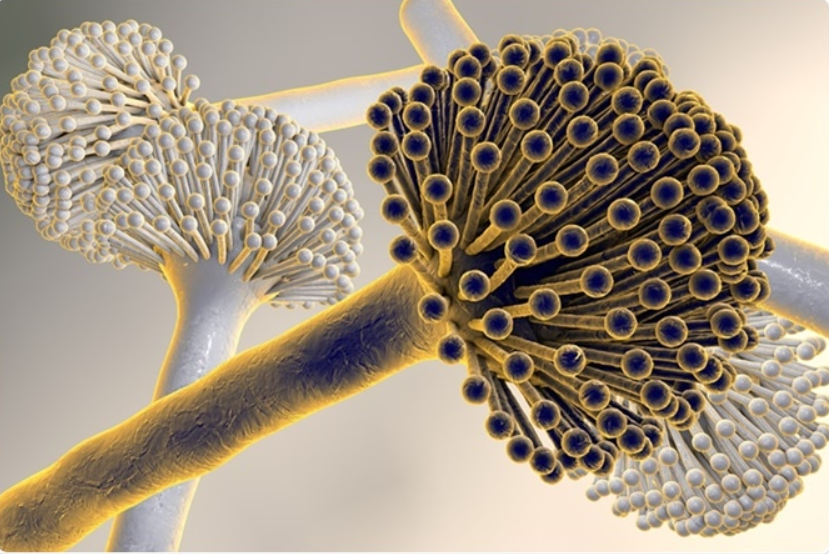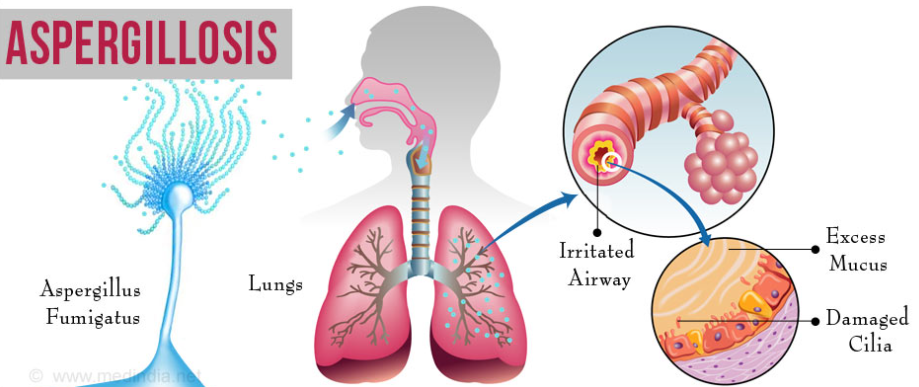Aspergillosis: Types, Causes & Symptoms
Facts you should know about Aspergillosis infection

- Aspergillus may be a genus name that represents over 185 plant life species, a number of that cause many styles of aspergillosis (fungal allergic reaction or infection) in humans.
- The causes of Associate in Nursing Aspergillus infection are fungi (mold).
- Asthma
- Fibrosis
- Tuberculosis (TB) or other lung infections
- Chronic obstructive pulmonary disease (COPD)
- Immune suppression, such as post-transplant medications
- Cancer
- Chemotherapy
- High-dose corticosteroids
- Aspergillus infection signs and symptoms vary with the kind of aspergillosis however all embrace airway issues that vary from delicate to severe.
Diagnosis is confirmed by distinguishing the plant life genus and species by tests, biopsy, and microscopic observation. - Treatment choices depend upon the malady’s kind and severity and will embrace an antifungal medication, corticosteroids, and/or surgery.
- Complications embrace blood clots, multiple organ harm, organ failure, and fatal harm.
The prognosis of allergic styles of nice to honest, however invasive varieties has a poor prognosis. - It is the potential to scale back the danger of aspergillosis by avoiding mobile mud and mold, mold removal, and victimization antifungal medications fittingly.
What is Aspergillus? What are the types of Aspergillus?
Aspergillus is that the genus name for a bunch (over 185 species) of threadlike fungi or common molds, most of that occur in Associate in Nursing nonsexual state, and reproduce by manufacturing conidia (asexual spores or conidiophores) which will unfold into many alternative environments, germinate, and so grow. concerning twenty species cause infections in humans.

fungus is that the commonest of the cluster, followed by genus Aspergillus|fungus genus} flavus and Aspergillus brasiliensis (formerly termed niger). genus Aspergillus fungus genus is especially mattered.
That means this species tends to induce a sensitized (allergic) reaction rather than infecting the body. alternative varieties or species like Aspergillus clavatus, the Aspergillus glaucus cluster, Aspergillus nidulans, Aspergillus oryzae, Aspergillus terreus, Aspergillus ustus, and Aspergillus Versicolor less ordinarily cause illness (note…species could have totally different names).
Infections that these fungi cause square measure termed aspergillosis. These fungi could cause respiratory organ (Aspergillus pneumonia) and alternative organ infections and sensitivity (mold allergic reaction or ABPA [allergic bronchopulmonary aspergillosis], for example). The U.S. Centers for illness management and interference (CDC) information processing system lists many styles of aspergillosisy:
- ABPA (allergic bronchopulmonary aspergillosis) (not infectious)
- Allergic fungus genus redness (not infectious)
- Azole-resistant (meaning proof against azole antifungal medication like Monistat or ketoconazole) Aspergillus fumigatus (infection)
- Aspergilloma — a ball of flora that grows in the Associate in Nursing organ just like the respiratory organ
- Chronic pneumonic aspergillosis — cavities or plant life ball formations (for three or additional months)
- Invasive aspergillosis — spreads to at least one space within the lungs and/or to quite one organ system
- Cutaneous (skin) aspergillosis — an infection that starts in a very skin break (skin infection) or spreads to the skin from another body website
Aspergillus Infection Risk Factor
Asthma
Asthma may be a clinical syndrome of chronic airway inflammation characterized by repeated, reversible, airway obstruction. Airway inflammation additionally ends up in airway hyperreactivity, which causes airways to slender in response to numerous stimuli.
The causes and risk factors of an Aspergillus infection?

The explanation for AN genus Aspergillus infection may be a flora (mold) that will, if conditions are favorable, unfold and injury tissue and human organs. However, the general public respire genus Aspergillus spores (conidia) daily with no sick effects. In general, those that develop any style of genus Aspergillus infection have risk factors that have airway compromise and/or weak immune systems. the subsequent are some samples of risk factors:
- Asthma
- Fibrosis
- TB or other lung infections
- COPD
- Cancer
- Chemotherapy
- High-dose corticosteroids
What are Aspergillus infection symptoms and signs?


- ABPA
- Wheezing
- Shortness of breath
- Cough
- Fever (rarely)
- Allergic Aspergillus sinusitis
- Stuffiness
- Headache
- Runny nose
- Reduced ability to smell
- Aspergilloma
- Cough
- Bloody sputum (hemoptysis)
- Chronic pulmonary aspergillosis
- Fatigue
- Weight loss
- Cough
- Bloody sputum (hemoptysis)
- Shortness of breath
- Invasive aspergillosis
- Fever and chills
- Cough
- Bloody sputum (hemoptysis)
- Difficulty breathing
- Chest and/or joint pain
- Skin lesions if fungi invade the skin
- Spread from lungs to different organs cause symptoms like bone, liver, and ear infection
- Death
How do doctors diagnose an Aspergillus infection?
Doctors build a diagnosing by evaluating a patient’s history, risk factors, symptoms, physical communicating, lab tests, and imaging tests sort of a chest X-ray or CT. they will send metabolic process fluid for tests (for example, Aspergillus galactomannan check, a biopsy that detects galactomannan, a molecule found within the plasma membrane of Aspergillus) and microscopic exams (view Aspergillus hyphae and conidia), and that they could examine and/or culture diagnostic assay samples
What are treatment options for an Aspergillus infection?
- Allergic kinds of aspergillosis: the antifungal medication Sporanox, steroid hormone
- Aspergilloma: antifungal medications square measure identical for invasive listed below and/or surgical removal
- Invasive varieties and chronic kinds of aspergillosis (including connective tissue or skin types): antifungal medications like voriconazole, lipide antibiotic drug formulations, posaconazole, isavuconazole, Sporanox, caspofungin, and/or micafungin
Although several people have died from the invasive sickness, there’s one report that states voriconazole cured a tolerant invasive fungus genus. Thus, the sickness is also curable in some individuals. characteristic ought to be mentioned with the patient’s doctor.



